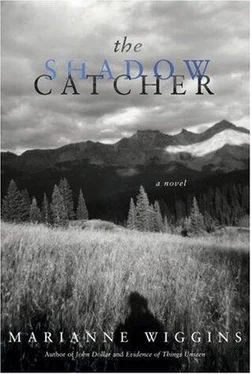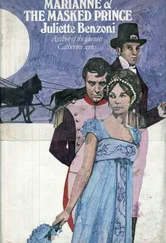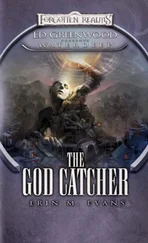It was no small surprise, then, when, late one afternoon, a cowboy in a broad-brimmed hat and riding boots appeared.
Hercules.
“—you should have told me you were coming!” Clara greeted him, not meaning to admonish, but embarrassed by her lack of preparation, self-conscious of the way she looked.
“—I’ve aged,” she fussed, seeing how he looked at her.
“Are you a real cowboy?” Florence asked.
“He’s your real uncle ,” Clara told her.
“Father is an Indian Chief ,” Beth announced. “That’s what you’re supposed to call him.”
Hercules had grown into a man and Clara couldn’t keep from smiling at the rugged, easy figure that he cut — too large, it seemed, for anywhere but the outdoors. In the last ten years he had gone from boyhood into acquired wisdom of a sage, from Tacoma to Wyoming on to Colorado where he had his own small ranch. He had brought a show horse to a client in Portland and had decided on impulse to board the train to come and see his sister.
And he could see at once that something weighed on her, despite her grace.
Her eyes were not the eyes that he remembered. Her confidence, so strong when they were in their youth, had left her.
“Let’s have some tea, and you will tell us all your news,” she said and led him to the kitchen where, he noticed, she suddenly seemed flustered. He watched her open one cabinet, and then another, seeming to hunt for things that were not there.
“Do you like fried bread?” Florence asked him. “We have fried bread for our supper.”
“Every day,” Beth added. “Except when we have soup.”
Clara prised the lid from a canister she’d found, peered inside and murmured, “Oh. It would appear we’re out of tea…”
He took the two girls with him to the grocer’s, returning with some chops, some eggs, a cake and tea, and after they’d had supper and the girls had gone upstairs, he sat with Clara at the table in the kitchen and said, “Truth time.”
He took her hand so she would talk but still she kept her silence.
“Whatever it is, Clara, we have been through worse. Together. And back then it was you getting me to do the talking.”
His hand was so rough — she turned it over, ran her fingers on his callused palm, as if, like the magic lamp, rubbing it would release the genie she once had inside.
“Edward is never home,” she finally said.
“But that is Edward.”
“Yes, but…He has changed.”
“How?”
“He has a…mission.”
“—he’s found religion ?”
“No…Well, in a way.”
She looked into her brother’s eyes, surprised that she could see there both the boy and this new man.
“I think he’s fallen out of love with me.”
“Oh, Clara…”
“I think I don’t exist for him. I think he doesn’t see me…”
“Has he… — is there another woman?”
“—oh lord no.”
“I will go and talk to him.”
She squeezed his hand.
“You can’t.”
“—why not?”
“No one knows where Edward is.”
“Who’s running the business?”
“I am. With the people we employ.”
“And where is Asahel?”
“He and Edward…They’re not speaking.”
“— why ?”
“Something…They had a falling out.”
“Clara…” He stared at her. “—what did you do ?”
“—oh please. You think that all of this…” She waved her hand around the room: “—is my fault?”
“Of course not, but—”
“—when a man leaves his wife, when a marriage fails, it must be something that the woman ’s done…”
“ Has your marriage failed?”
She waved her hand around the room again: “I would not exactly call this a success.”
“Then you need a lawyer.”
“—oh Hercules: it hasn’t come to that .”
“That’s what Lodz would tell you.”
“—that’s because Lodz was one.”
“—and we needed him.”
“—we sure as shooting did .”
They almost smile.
“—surely Edward’s making money?”
“Edward’s spending money.”
“—and the business?”
“—bleeding money to keep Edward and his mission alive.”
“But I thought Mr. Morgan—”
“—all that money’s gone.”
“—on what ?”
“Look around you. I am living in a house with seven bedrooms. Everything that Edward does is grand . — grand scale .”
“You can come to live with me in Colorado.”
She hadn’t smiled as much in months, even with her daughters.
“I am going to make a ‘mission’ of my marriage,” she announced. “But it’s good to know that I have somewhere else to go…”
He saw a glimpse of her old self in her, and smiled.
“How are the horses?” she inquired: “—still talking?”
“I’m surprised that you don’t hear them, Clara.”
“Perhaps some day I will …”
When she thought about it, in her final hour, that last afternoon with Hercules might have been the last time she felt young again. It would take years — another decade — for her to finally gain the courage to admit defeat, to finally realize she was beaten, that she finally had to follow the advice of Lodz and Hercules and hire an attorney, because another’s life depended on her stamina to stay alive and well, just as, those many years ago, her brother had once needed her.
As a result of an abrupt and unexpected, brutal and ungentle final coupling nineteen years after their first union, Clara found that she was pregnant, yet again, at a time when her other children were old enough to be leaving home, themselves.
Edward was not present for the birth but came to visit Katherine once, when she was still an infant: and then did not see her again for eighteen years.
Once the divorce proceedings were initiated, all three of her older children turned their backs on her.
It was as if someone had taken the portrait of the three of them hanging in the chamber in her mind and turned the picture to a wall.
Their outrage toward her, for her legal action against Edward, was such that when she was awarded the Edward Curtis Studio in full, Beth contrived to steal her father’s glass plate negatives and break them so their mother couldn’t profit from their father’s work.
When Edward was cited for contempt of court for failing to pay child support for Katherine for nine years, Clara had him arrested in the Seattle train station while he was passing through, on his way to California from Alaska.
From that day her older children, in the Curtis fashion, never spoke to her again. Stopped speaking to her, fully.
Turned their backs on her.
Still she held a distant hope that someday she might go to Colorado.
It was a fantasy, she knew — what would she do in Colorado? — she, whose passions had always been the bookish kind, who was far more at home inside the reverie attendant to a sonnet than to the outside where the panorama made her feel diminished and afraid.
So when the first police reports were sent to Beth and Florence, both of them — with Harold — concurred there must be some mistake.
Clara…in a boat …alone? On Puget Sound—?
This must be another case of mistaken identity.
Their mother had never rowed a boat in her life, as far as they all knew. Their father , on the other hand, was a renowned adventurer.
But she was not the type.
They refused to believe that she had perished in a boating accident.
Her body had not been found.
But the police described the clothes that had been bundled in a linen pillowcase and tied to the oarlock: the pillowcase had Clara’s maiden name initials embroidered on its edge, and both Florence and Beth remembered dressing up in clothes from Clara’s painted chest identical to those that had been found.
Читать дальше











